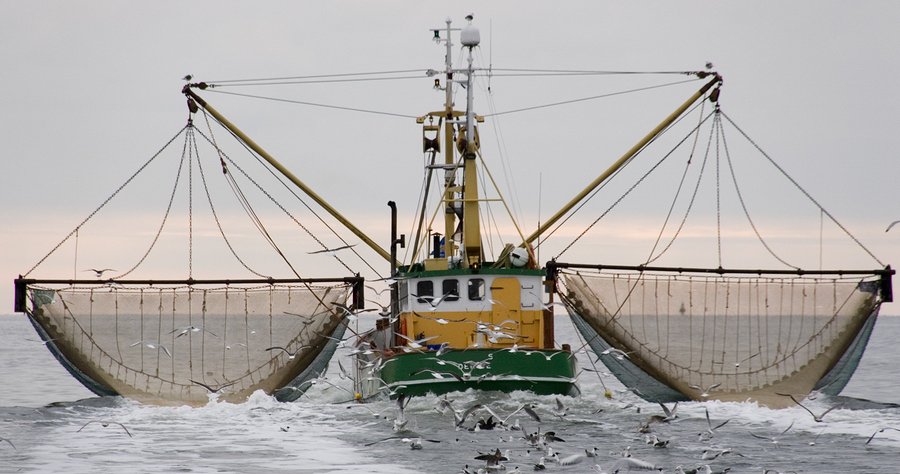Article Summary:
- Research shows that mercury levels in some fish are still increasing, despite lower levels in our oceans
- Overfishing and climate change are the primary causes of high mercury levels in fish
- Fish can be part of a healthy diet if you carefully choose which ones you consume
Research on Rising Mercury Levels in Fish
Seafood is an excellent source of protein and omega 3 fatty acids in our diet; nevertheless, it can carry a notable risk to our health. While most of us are aware that mercury levels in certain fish are often elevated, things might be even worse than we thought. Although mercury levels in the oceans appear to be dropping, unfortunately, new research suggests that the same does not hold true for the fish in the ocean. In fact, the levels in certain types of fish have only increased.
The study, which was conducted at Harvard University in Cambridge, Massachusetts, found that mercury levels are continuing to rise in several species of fish, likely due at least in part to overfishing and climate change.1Schartup, Amina T.; et al. “Climate change and overfishing increase neurotoxicant in marine predators.” Nature. 7 August 2019. Accessed 20 August 2019. http://www.nature.com/articles/s41586-019-1468-9. These results are based on an investigation that included data compiled across three decades, from the 1970s through the 2000s.
An analysis of the information yielded evidence of very concerning problems in our seafood supply. In Atlantic cod, for example, methylmercury concentrations have risen by as much as 23 percent during the research period. And in Atlantic Bluefin tuna, mercury levels have jumped a whopping 56 percent.
The Effects of Climate Change and Overfishing
According to the researchers, part of the problem can be directly attributed to overfishing of certain species of fish. Since the populations of small herring and sardines have diminished in some areas due to overfishing, their natural predators like cod must adapt their diets and start eating other kinds of fish. And it is often the new species upon which they are dining that have higher mercury levels.
The other issue likely responsible is climate change, which has contributed to rising ocean temperatures over time. In warmer waters, fish are more active and their metabolism speeds up. Higher activity levels lead to a need for greater calorie intake, and as fish consume more of their prey, they end up with an increased intake of mercury as well, particularly since mercury accumulates throughout the food chain.
Health Dangers of Mercury
Mercury is associated with serious neurological problems in humans. Studies have shown that exposure to mercury may impair memory, attention span, and fine motor skills. Mercury is also linked with heart risks, including a greater likelihood of having high blood pressure and heart attacks. What’s more, when pregnant women consume mercury-laden fish, there is a significant danger that the child may develop a neurological disorder and experience difficulties with language, attention, and muscle coordination.
Consuming Fish Without Excessive Mercury Intake
Ultimately, while this is a worrisome situation, it does not mean fish should be off your menu. Consuming fish a couple of times a week is still a healthy choice, but you will have to select mainly from the species that don’t have high mercury levels. That means avoiding tuna, swordfish, shark, king mackerel, cod, and marlin for the most part, and only eating them on occasion.
Instead, focus on fish that generally have the lowest levels of mercury, such as:
- Shrimp
- Scallops
- Salmon
- Oysters
- Sardines
- Anchovies
- Catfish
- Pollock
- Atlantic mackerel
- Haddock
And you might want to make a couple of heavy metal detoxes a year to clean out any mercury accumulated from your diet a part of your ongoing health regimen.
References
| ↑1 | Schartup, Amina T.; et al. “Climate change and overfishing increase neurotoxicant in marine predators.” Nature. 7 August 2019. Accessed 20 August 2019. http://www.nature.com/articles/s41586-019-1468-9. |
|---|












Not only is mercury the second most toxic substance on the planet next to plutonium, but it also has a tendency to electrically bind with soft tissue. So while you may excrete some of it after ingestion of fish, over time it bioaccumulates in the body. Therefore, it’s not a good idea to eat fish or seafood at any time. And BTW, that includes Pacific fish – remember the Exxon Valdez and Fukushima?